Blog

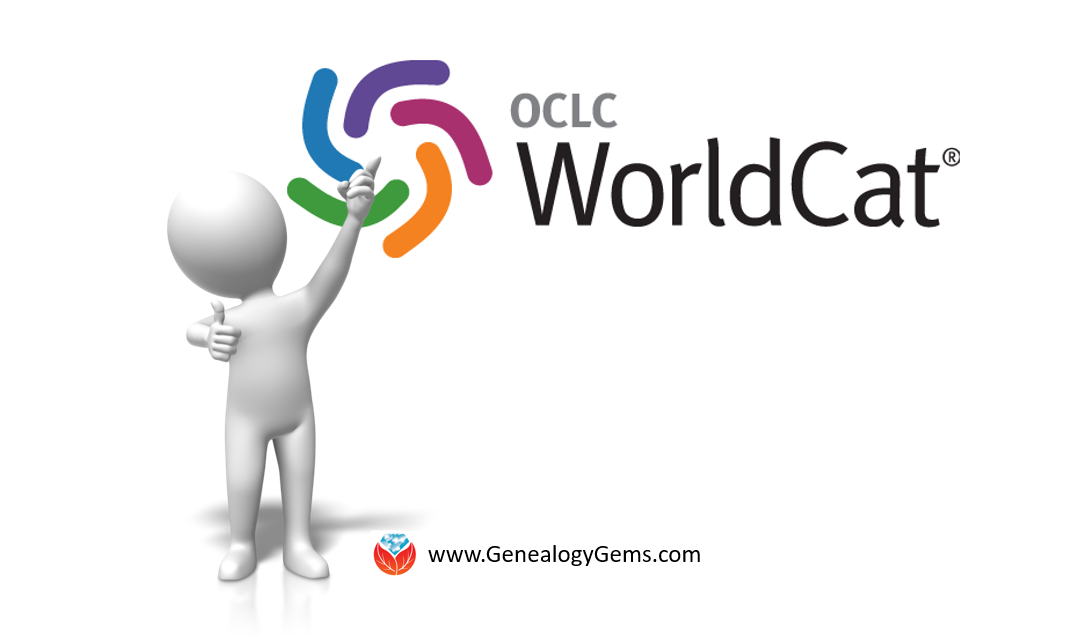
WorldCat Gets a Major Addition: New Genealogy Records Online this Week
We think this week’s list of new and updated genealogical records is really the cat’s meow! WorldCat gets a major addition to their database that is going to help make strides in researching ancestors from Quebec. Search the Irish black sheep in the family and dive into records for Middlesex, European soldiers of WWI, and a helpful record collection for Iowa ancestors!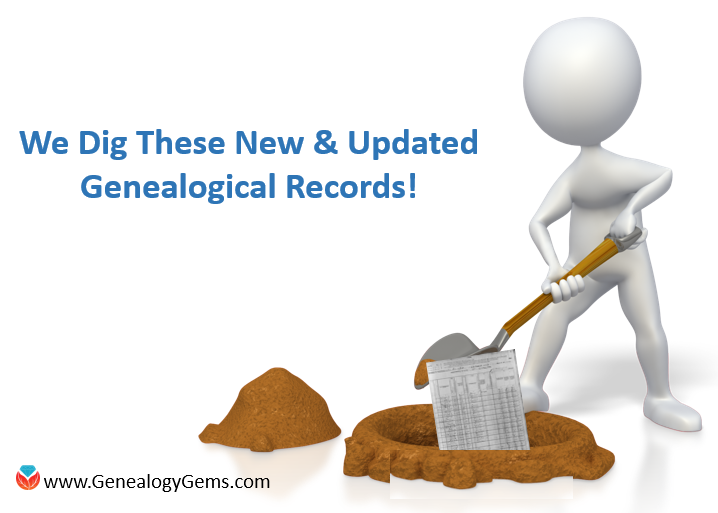
 WorldCat
WorldCat
WorldCat is a catalog that itemizes the collections of 72,000 libraries in 170 countries and territories. If you have a book or publication that you are dying to get a hold of, you can use World Cat to track it down. Using a title or keywords you are interested in, World Cat will locate where the closest copy of a book, DVD, CD, or article, for you to view. Isn’t that wonderful?
Many genealogists use World Cat and we have some exciting news. 2.4 million new records have been added by Bibliothèque et Archives nationales du Québec (BAnQ) to the WorldCat database. This mega contribution is dedicated to those records from Quebec or those that relate to Quebec.
To learn more about and search WorldCat, click here. And then take a few minutes to watch Lisa’s interview with Jay Jordan, President & CEO of OCLC about the collaboration between OCLC and FamilySearch to bring better acess to records and resources to everyone.
Ireland – Outrage Reports
What’s an outrage report? This new collection at Findmypast consists of thousands of reports created by the Royal Irish Constabulary between 1836 and 1840. Outrage reports were created by chief constables who were responsible for writing a short summary of all incidents, crimes, or disturbances that occurred within their county.
The original records are held at the National Archives in London. These historic Irish reports include descriptions of thefts, assaults, suicides, rescues, cases of infanticide, arson, and more. Each record includes both a transcript and digital image of the original document. Images of the original documents contain a short description of the event or offence reported or the details of the crime committed, so reader beware. If you have a black sheep in the family, you might want to take a look at this special collection.
United Kingdom – Middlesex – Court Records
Another new collection at Findmypast is titled “Middlesex, London, Old Bailey Court records, 1674-1913.” This collection holds over 782,000 court records from London’s Old Bailey. Old Bailey was the central criminal court of England and Wales. Within this collection, you will find both transcripts and links to images of the original documents. Criminal proceedings and biographies of executed criminals is just the tip of the iceberg, so you’ll want to start digging today!
United Kingdom – WWI War Diaries
Fold3.com announced their new database collection “UK WWI War Diaries.” These diaries are unit diaries. They cover operations and movements for the British and colonial united who served between 1914 and 1920 in France, Belgium, and Germany, as well as in Gallipoli/Dardanelles Campaign.
The diaries are separated into two titles: UK, WWI War Diaries (France, Belgium, and Germany) and UK, WWI Diaries (Gallipoli-Dardanelles.) These diaries are a daily record of events and some diaries contain more information than you might expect. You may even be able to find supplemental documents too. This collection is organized by regiment, division, and then sub-unit. Remember, these are typically handwritten records. You may want to browse the records one-by-one to make sure your search is not in vain.
Though these are not personal diaries, you may find your ancestor listed by name. It is always more meaningful to learn of our ancestors in these ways. To learn of the conditions, their movements, their gains and their losses, can paint a more realistic story of their time in WWI.
United States – Iowa – State Census
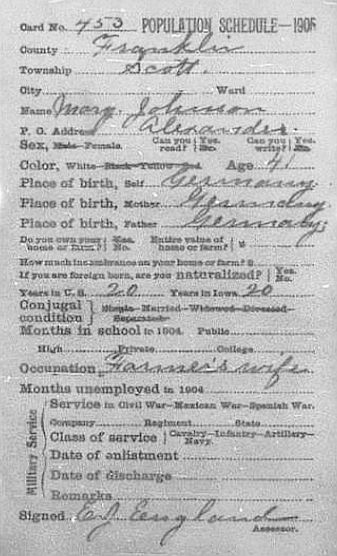
State censuses are unique. They were usually taken on the 5’s, like in 1885, 1895, or 1905, etc. Iowa is one of my favorite states to research in because of their state census records. If you have Iowa ancestors, you will love the 1905 Iowa State Census now available to search for free at FamilySearch.org.
The 1905 census asked similar questions to those asked in many of the U.S. Federal Censuses, such as name, age, and place of birth. This census also asked how long they had lived in the U.S. and how long they had lived in Iowa. This is particularly helpful when determining if an immigrant ancestor came “straight to Iowa,” or may have resided in another area for a time.
This census also includes signatures of those enumerated which is a neat piece of memorabilia to have for one of your kindred dead.
Learn More about Using WorldCat for Genealogy
WorldCat for Genealogy: 40 Million Records and Digital Gateway
WorldCat + FHL Catalog = True Genealogical Love!
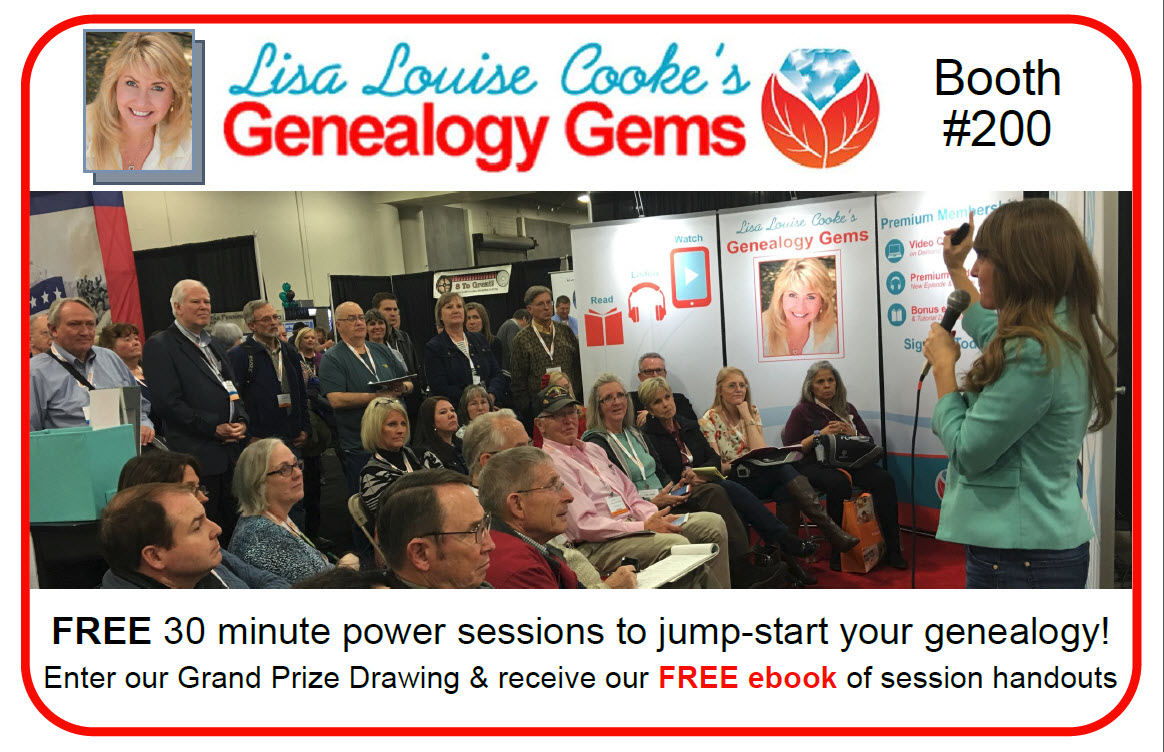
Great Scott! Genealogy Gems is Attending Federation of Genealogical Societies Conference
The Federation of Genealogical Societies (FGS) Conference for 2016 is “Time Travel: Centuries of Memories” and will be held in Springfield, Illinois. See what your future holds by learning about the past. Genealogy Gems will be there, and you’re going to love our line-up of free 30-minute classes in the exhibit hall (booth #200). Plus, enter to win our Grand Prize drawing! Here are all the details.
Make Your Future Whatever You Want, But Make it a Good One

JMortonPhoto.com & OtoGodfrey.com [CC BY-SA 4.0 (http://creativecommons.org/licenses/by-sa/4.0)], via Wikimedia Commons
This Federation of Genealogical Societies Conference will benefit the novice, the professional, and anyone in between. With over 160 sessions and 72 expert speakers from all over the world, you will be inspired to reach greater heights in all things genealogy.
Each day, a new set of classes will guide you through:
- the U.S. Midwest (regional track)
- the United Kingdom (British Isles and Commonwealth track)
- the continental European research (ethnic track), to give you the latest and greatest in genealogy research.
If you missed early registration, that’s okay. Walk-in registration is available by clicking here. Enjoy all four days of inspiring classes, only attend a day or two, or just meander around the exhibit hall.
Free Stuff in the Exhibit Hall
The exhibit hall is always a favorite place to network and socialize with your genealogy buddies. Wander from booth to booth to see what the future holds for genealogists and gather up all the fun and free swag, too.
Most importantly, Lisa wants to see you for our free sessions that are back by popular demand! With such a positive response last year, Genealogy Gems will once again be hosting a series of free presentations at this year’s FGS conference. Join us in our Genealogy Gems Theater in booth #200 in the exhibit hall. Our 30-minute information-packed sessions will help you think outside the box for greater genealogy success.
Attend any of our sessions and sign-up to receive our free e-book of handouts for all the sessions. Want to plan ahead so you don’t miss a thing? Glance over the schedule below (click the button to download the schedule) and mark your can’t-miss sessions. (Not able to attend? Stay tuned because we will be announcing which sessions will be broadcast live over Periscope for free.)
BONUS: Join Lisa in the FGS theater area of the exhibit hall
Saturday at 12:10 for
Top Google Search Strategies for Genealogists
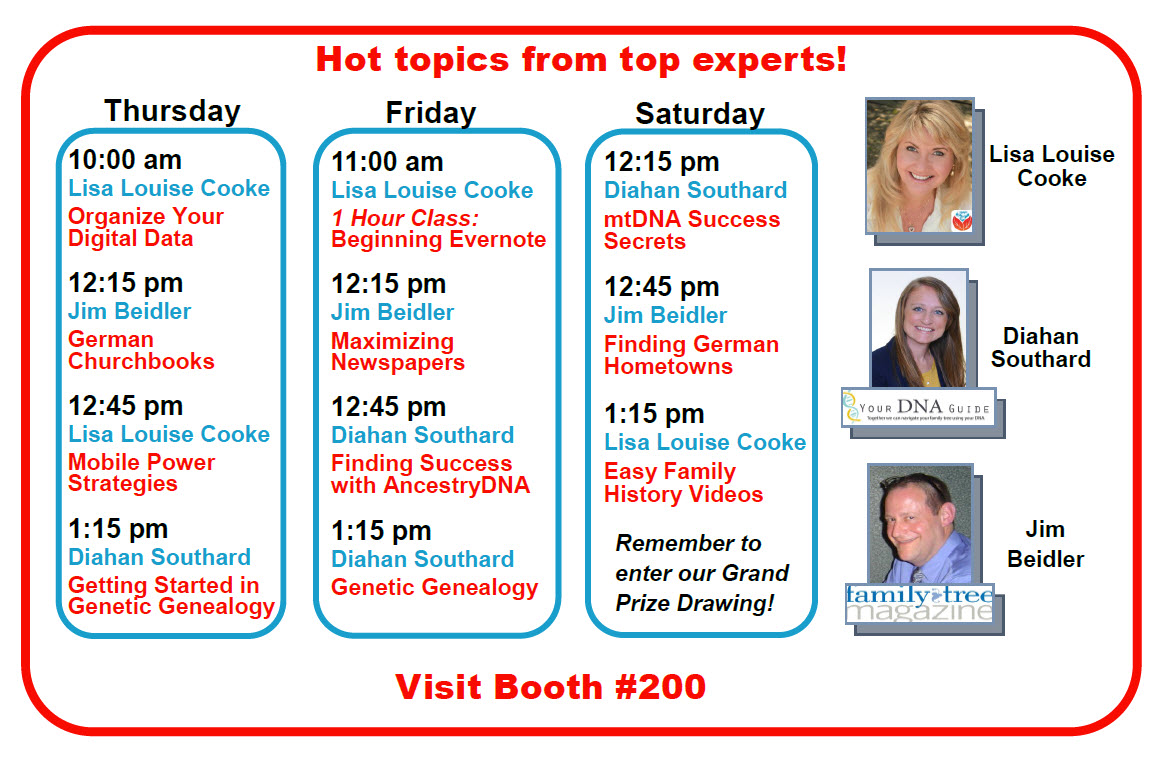
Grand Prize Drawing: Total Retail Value over $210
Presenters at the Genealogy Gems Theater have pitched in for this year’s Grand Prize drawing. The winner will receive:
…from Lisa Louise Cooke’s Genealogy Gems
- 1 year Genealogy Gems Premium Membership, Retail value $39.95
- e-book bundle: Mobile Genealogy, The Genealogist’s Google Toolbox, and How to Find Your Family History in Newspapers, Retail Value: $41.89
…from Your DNA Guide Diahan Southard
- DNA Video Tutorial Series, Retail value $29.95
…from Family Tree Magazine: an e-book bundle valued at about $100
- Finding Your German Roots Online ($21.99 value)
- Family Tree Polish, Czech, and Slovak Genealogy Guide ($26.99 value)
- Unofficial Guide to Ancestry.com ($24.99 value)
- How to Use Evernote for Genealogy ($25.99 value)
Click here for the Grand Prize entry form, which also gets you the free e-book with all the session handouts. Drop the entry off at booth #200. The winner will be notified by email.

Lisa will of course be presenting lectures during the daily sessions. Jump on over to our website page for even more information about the FGS Conference.
We’re looking forward to seeing you there, friends!
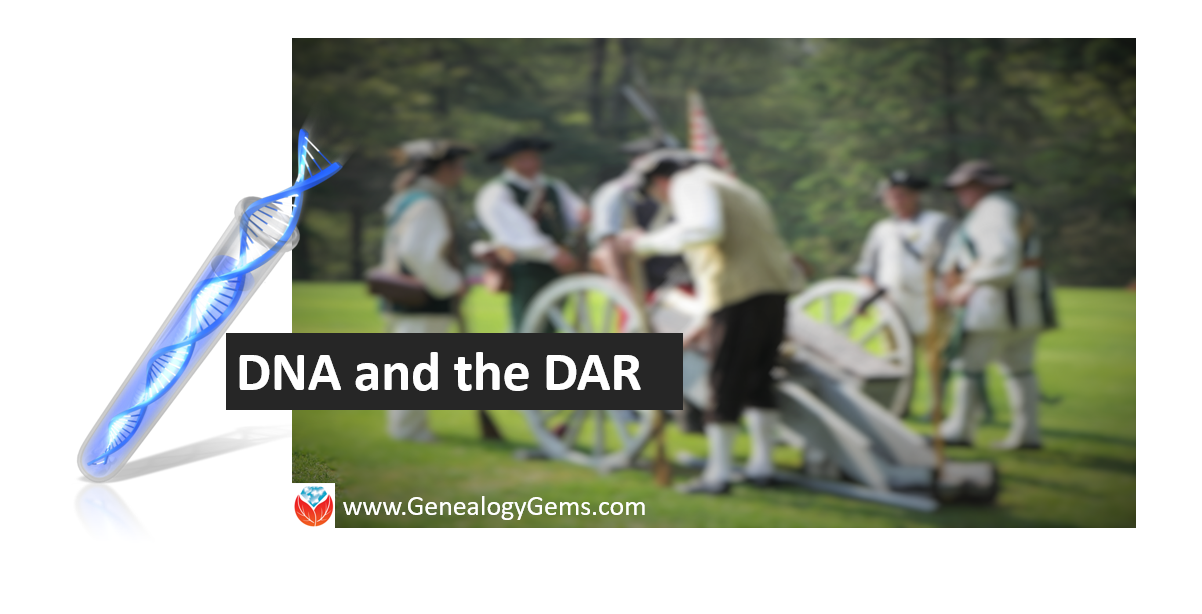
Why I Wish the DAR DNA Policy Was a Little Different
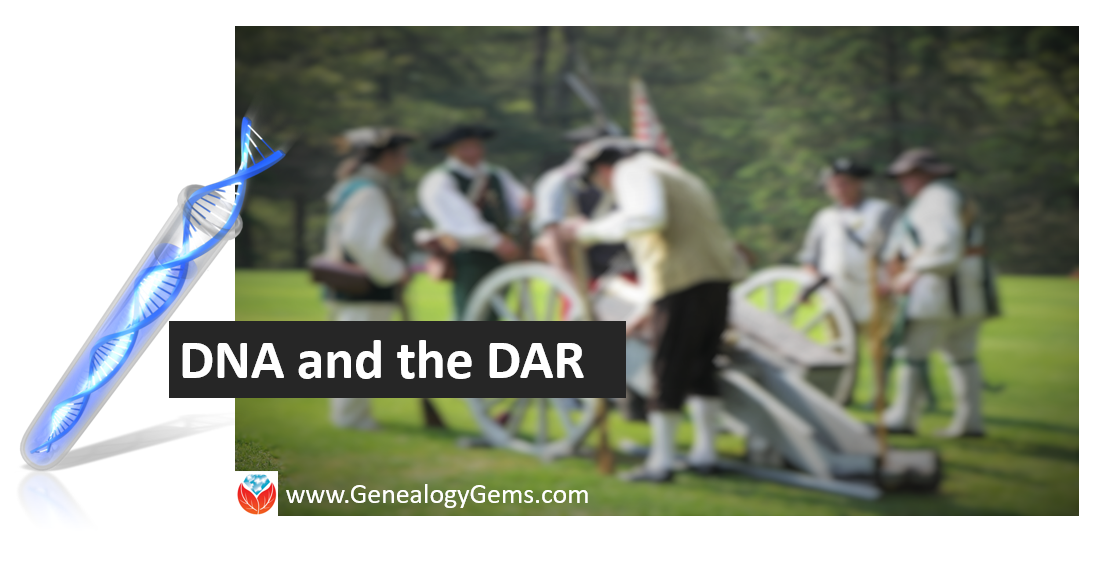
The Daughters of the American Revolution (DAR) accepts limited DNA evidence to prove descent from a Revolutionary War veteran. In my opinion, the DAR DNA policy is a little too limited. Here’s why–and what you can do.
Membership to the Daughters of the American Revolution (DAR) has been a holy grail for U.S. genealogists for 125 years. With its requirement of proof of a “lineal bloodline descendant from an ancestor who aided in achieving American independence” in three categories: birth, marriage, and death, as well as proof of Revolutionary War Service, membership is exclusive to those with an iron-clad paper trail.
That is, until 2014, when the DAR added DNA evidence to its list of acceptable documents proving a relationship to a Revolutionary War ancestor.
What does the DAR DNA Policy Accept?
The DAR only accepts one of the three forms of DNA testing which is the Y chromosome test, or YDNA. The YDNA traces only a direct paternal line, making it a great choice when trying to link living males with their Revolutionary counterparts. This YDNA is basically passed unchanged from generation to generation, making the modern day holder of the YDNA the proud owner of possibly exactly the same YDNA that fought the Redcoats. That’s pretty cool, don’t you think?
The DAR recently announced that to further help those wanting to use their YDNA as part of their application, they have formed a project at Family Tree DNA, the company that provides the YDNA testing. Projects are absolutely the best way to get the most out of your YDNA testing. There are surname projects, location projects, haplogroup (deep ancestral group) projects, and even special interest group projects, such as this one for the DAR.
While the results of the testing are only available to members of the group, the statistics page gives us an idea of the scope of this project. They currently have 1,242 total members and what looks to be about 430 YDNA tests completed (though it is admittedly difficult to tell based on the chart online.) This means if you think your paternal line may be a candidate for the DAR, you can have a representative of your line tested and compared to the group. If you find a match, you will have relative certainty that you do connect to that Patriot, and can then be more confident in your traditional research in pursuit of the necessary paper connections.
In April the DAR opened up project membership to include mtDNA and autosomal DNA. They will not be using these two kinds of DNA in their applications (yet), but hopefully this project will pave the way for the addition of those tests in the future (though, for several reasons, inclusion of these tests in the application process will be more difficult.)
Though, in all honesty, they have made the YDNA process difficult enough. Let’s say that you are actually able to trace down multiple generations to find a direct male descendant of your Revolutionary guy to be tested, an individual who is, the DAR mandates, “sharing your maiden name or your mother’s maiden name,” and you convince that unassuming relative to give up his saliva, you still are only half way there. The DAR guidelines also state that you have to have a second individual who is “a descendant of the same Revolutionary War ancestor through a different unbroken male lineage that has been previously proven on a DAR application…” (I added the emphasis here.)
A Practical Example of the DAR DNA Policy
OK, so let’s say you are a genealogical whiz and, let’s face it, you were lucky, and you find two such candidates and have them tested.
Well, the DAR tells us that those two men must match EXACTLY on the 37 YDNA markers tested. Now there is no telling when that YDNA might experience a mutation. So to me it seems a little unfair to require perfection. So it is possible, that even after all the work of finding the right guys to be tested, the test itself may work against you, as even one difference is enough to keep this YDNA off of your application, at least for now.
So while I applaud the DAR for using YDNA testing at all, and for spearheading a special interest project at Family Tree DNA, the reality is that the limitations of direct paternal line genealogy and the requirements of testing make it unlikely that very many will be able to take advantage of the YDNA in their DAR applications.
However, there are a few things you can take away from this article now:
- First, collect those DNA samples whenever you can, especially for key relatives, like your paternal line and the oldest living generation (whose DNA is less likely to have experienced any mutation.)
- Second, keep your research paper trail strong. Nothing in the near future of the genetic genealogy industry tells us that distant relative connections (like to your Revolutionary War ancestor) will be provable by DNA alone.
- And third, definitely look at crowd-sourced studies for your particular DNA. Those surname, location, haplogroup, and special interest group projects I mentioned from FTDNA are just some of the ones that might help your research—or that you could use to help someone else’s. I’ve talked about these studies before: click here to read about them.
My Complete DNA for Genealogy Research Guide Series
I am Diahan Southard, Your DNA Guide, and the author of a series of genetic genealogy quick guides. My guide called Y Chromosome DNA for the Genealogist is the perfect tool to help guide you through the testing and analysis process. Click here to learn more about this guide and here for all of my guides, or click here to learn more about my series of how-to videos, also available to Gems fans for a special price.
Thanks for sharing this post with your genealogy friends who do DNA research (especially those who may have Revolutionary War ancestors!)





